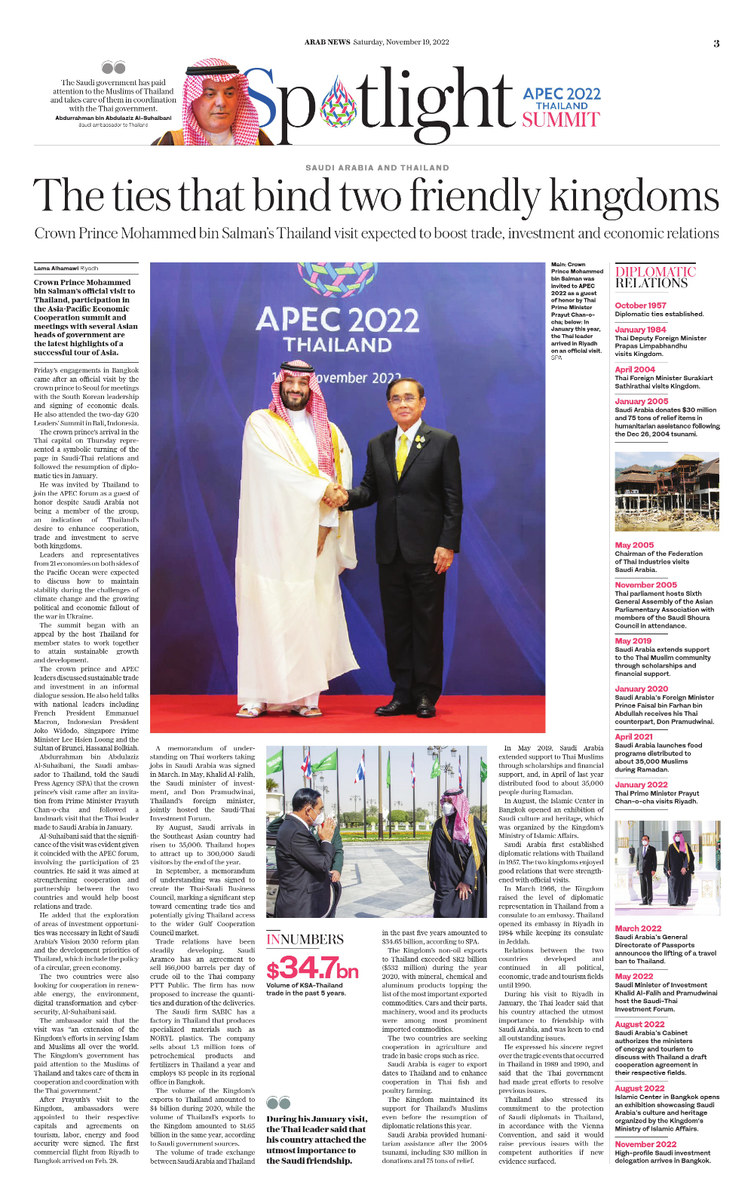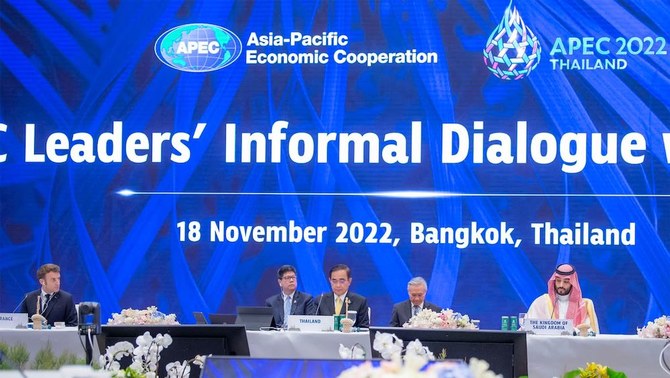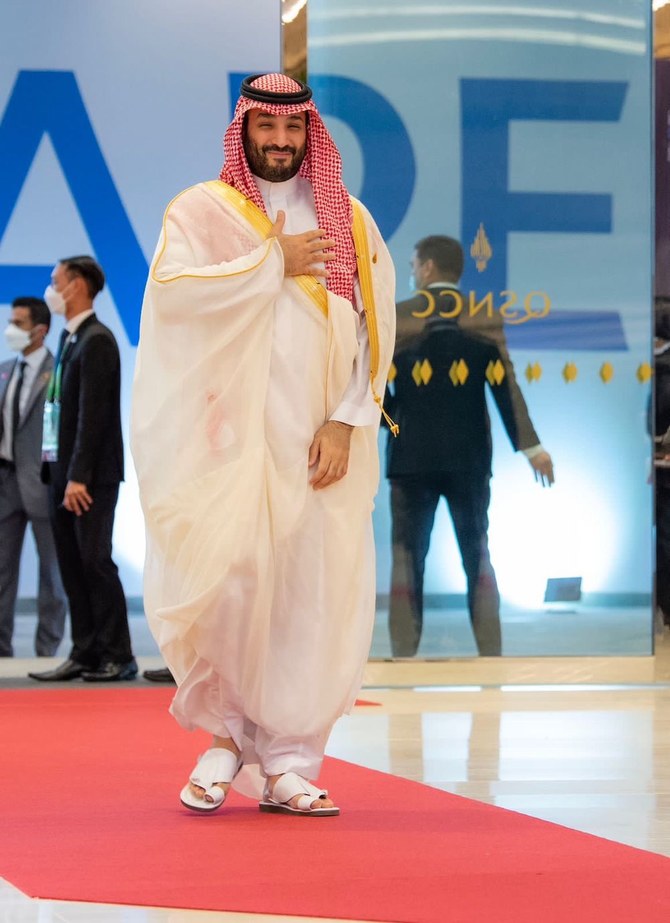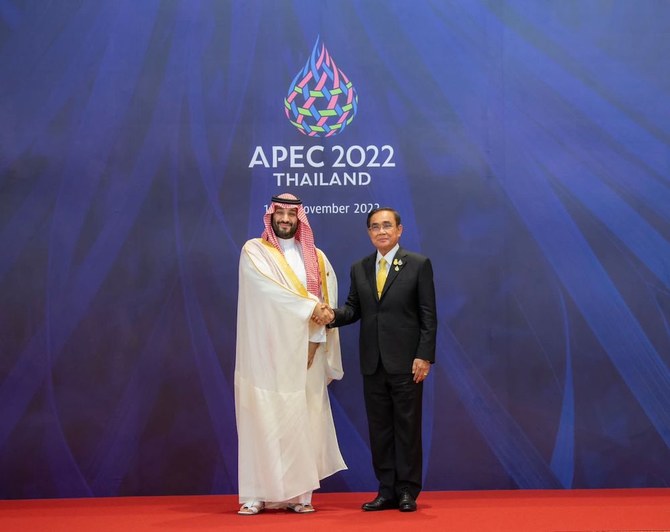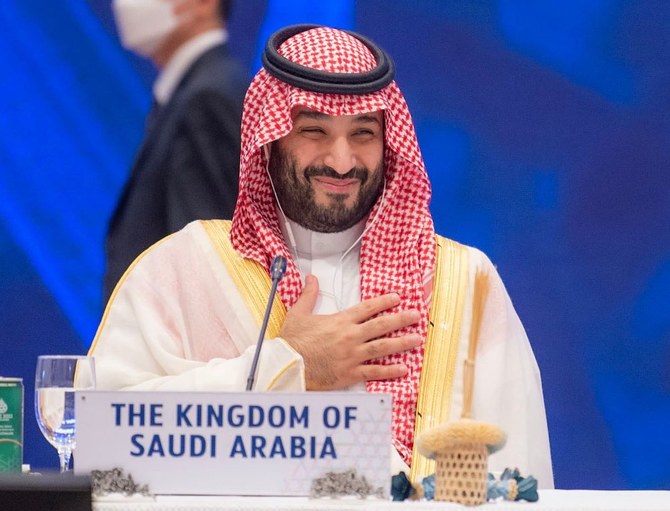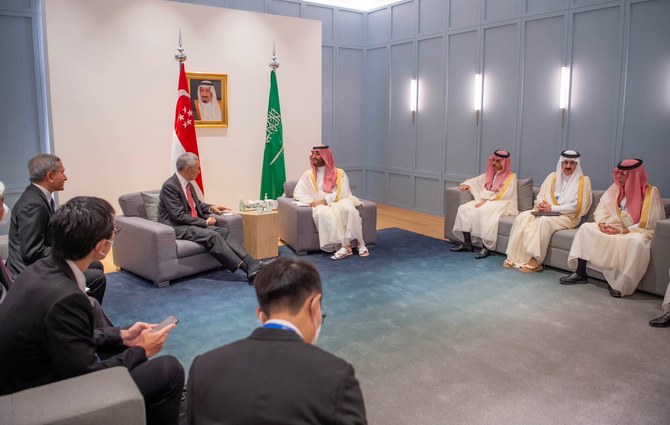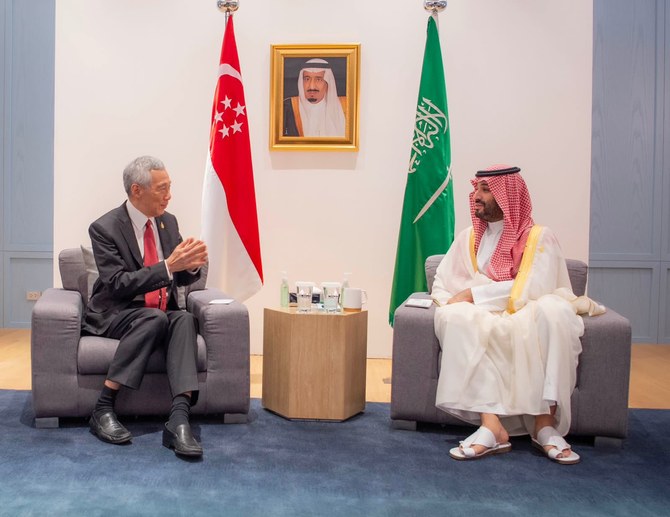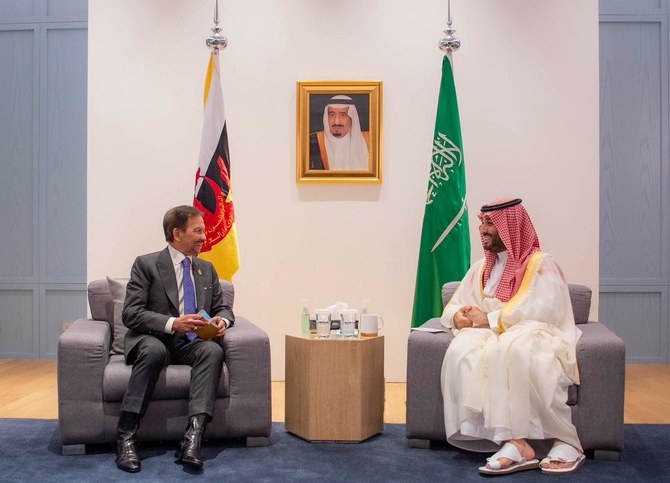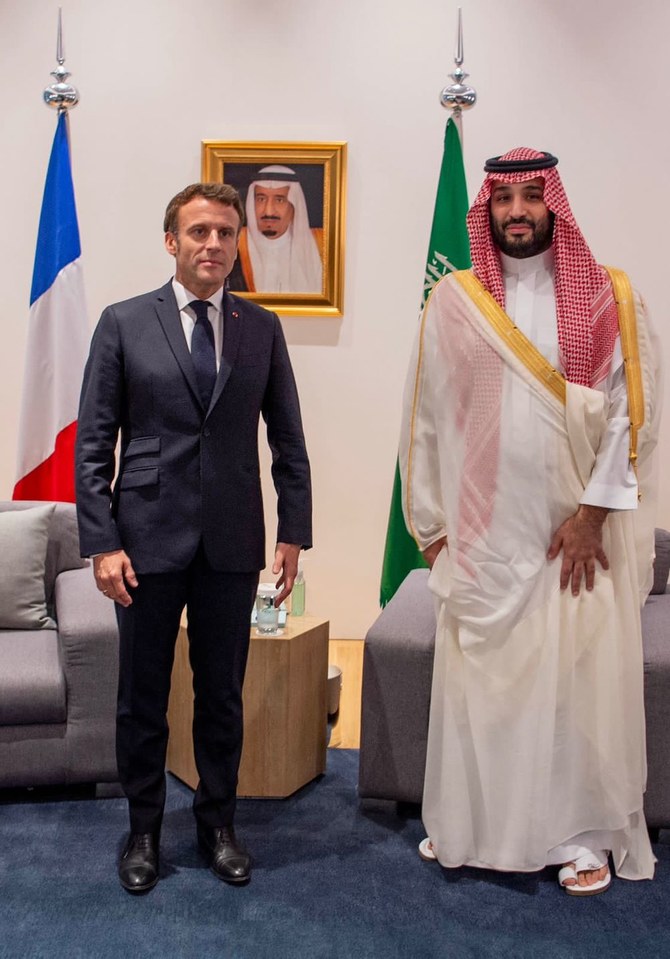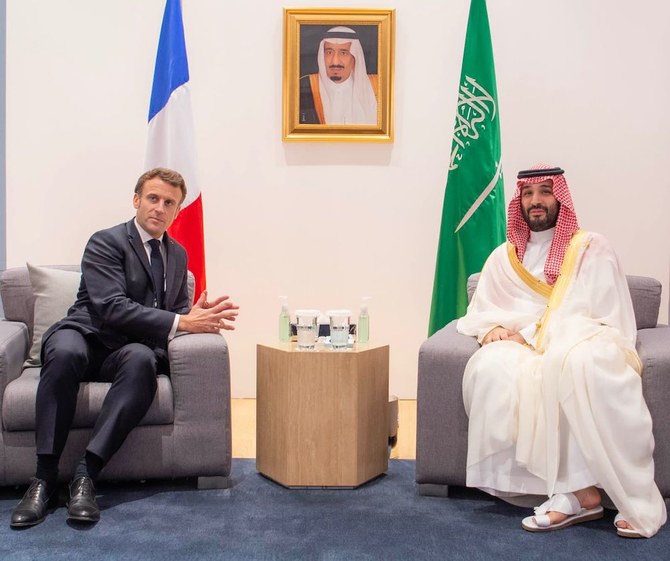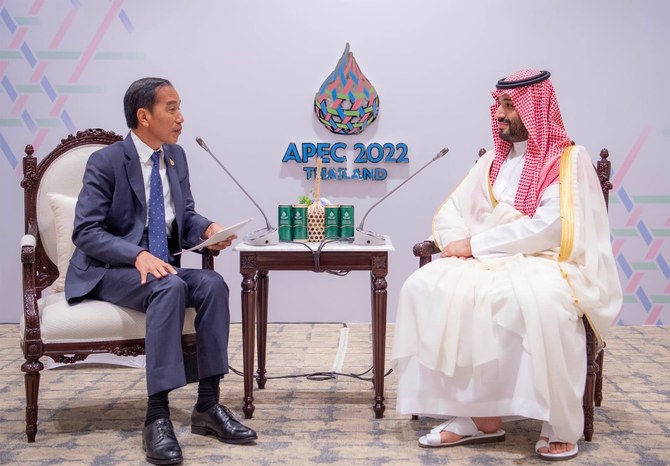RIYADH: Crown Prince Mohammed bin Salman’s official visit to Thailand, participation in the Asia-Pacific Economic Cooperation summit and meetings with several Asian heads of government are the latest highlights of a successful tour of Asia.
Friday’s engagements in Bangkok came after an official visit by the crown prince to Seoul for meetings with the South Korean leadership and signing of economic deals. He also attended the two-day G20 leaders’ summit in Bali, Indonesia.
The crown prince’s arrival in the Thai capital on Thursday represented a symbolic turning of the page in Saudi-Thai relations and followed the resumption of diplomatic ties in January.
He was invited by Thailand to join the APEC forum as a guest of honor despite Saudi Arabia not being a member of the group, an indication of Thailand’s desire to enhance cooperation, trade and investment to serve both kingdoms.
Leaders and representatives from 21 economies on both sides of the Pacific Ocean were expected to discuss how to maintain stability during the challenges of climate change and the growing political and economic fallout of the war in Ukraine.
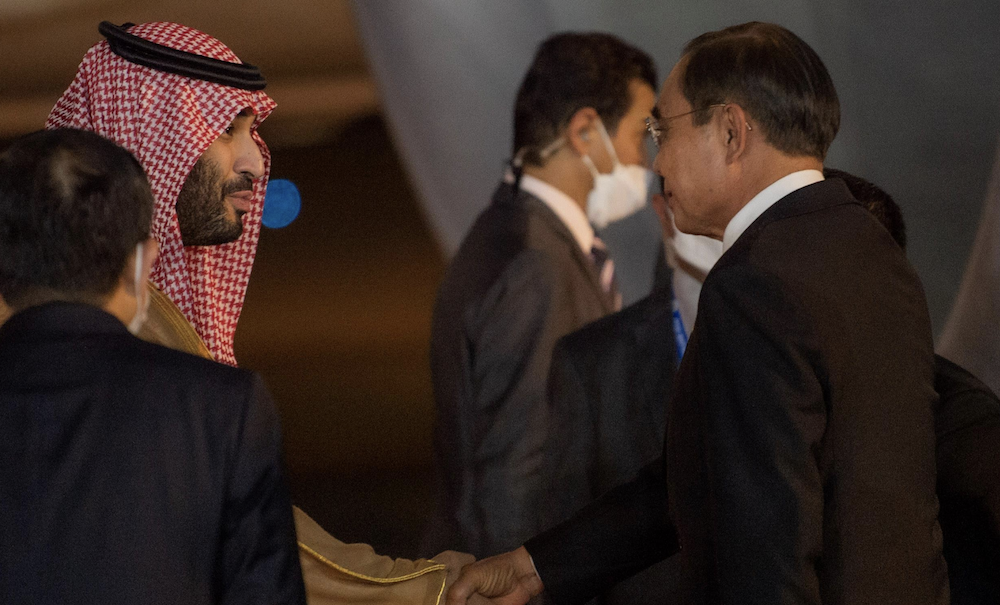
Crown Prince Mohammed bin Salman arrives in Thailand on an official visit, where he was received by the Prime Minister and Minister of Defense of Thailand. (SPA)
The summit began with an appeal by the host Thailand for member states to work together to attain sustainable growth and development.
The crown prince and APEC leaders discussed sustainable trade and investment in an informal dialogue session. He also held talks with national leaders including French President Emmanuel Macron, Indonesian President Joko Widodo, Singapore Prime Minister Lee Hsien Loong and the Sultan of Brunei, Hassanal Bolkiah.
Abdurrahman bin Abdulaziz Al-Suhaibani, the Saudi ambassador to Thailand, told the Saudi Press Agency (SPA) that the crown prince’s visit came after an invitation from Prime Minister Prayuth Chan-ocha and followed a landmark visit he made to Saudi Arabia in January.
Al-Suhaibani said the significance of the visit was evident given it coincided with the APEC forum, involving the participation of 23 countries. He said it was aimed at strengthening cooperation and partnership between the two countries and would help boost relations and trade.
He added that the exploration of areas of investment opportunities was necessary in light of Saudi Arabia’s Vision 2030 reform plan and the development priorities of Thailand, which include the policy of a circular, green economy.
The two countries were also looking for cooperation in renewable energy, the environment, digital transformation and cybersecurity, Al-Suhaibani said.
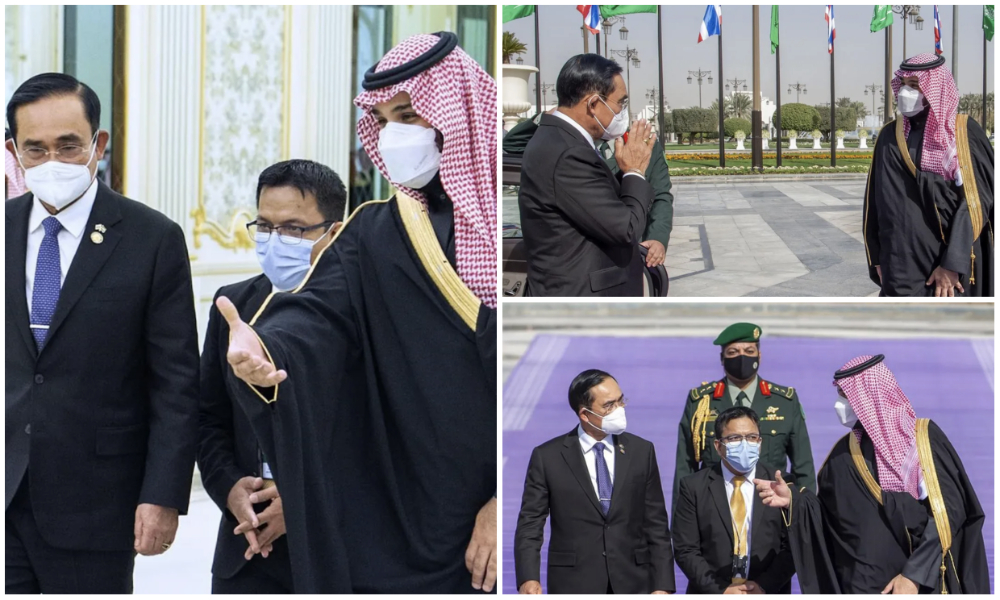
Saudi Crown Prince Mohammed bin Salman greets Thai Prime Minister Prayut Chan-o-cha as he arrives in Riyadh on an official visit in January 2022. (SPA)
 The ambassador said that the visit was “an extension of the Kingdom’s efforts in serving Islam and Muslims all over the world. The Kingdom’s government has paid attention to the Muslims of Thailand and takes care of them in cooperation and coordination with the Thai government.”
The ambassador said that the visit was “an extension of the Kingdom’s efforts in serving Islam and Muslims all over the world. The Kingdom’s government has paid attention to the Muslims of Thailand and takes care of them in cooperation and coordination with the Thai government.”
After Prayuth’s visit to the Kingdom, ambassadors were appointed to their respective capitals and agreements on tourism, labor, energy and food security were signed. The first commercial flight from Riyadh to Bangkok arrived on Feb. 28.
A memorandum of understanding on Thai workers taking jobs in Saudi Arabia was signed in March. In May, Khalid Al-Falih, the Saudi minister of investment, and Don Pramudwinai, Thailand’s foreign minister, jointly hosted the Saudi-Thai Investment Forum.
By August, Saudi arrivals in the Southeast Asian country had risen to 35,000. Thailand hopes to attract up to 300,000 Saudi visitors by the end of the year.
In September, a memorandum of understanding was signed to create the Thai-Saudi Business Council, marking a significant step toward cementing trade ties and potentially giving Thailand access to the wider Gulf Cooperation Council market.
Trade relations have been steadily developing. Saudi Aramco has an agreement to sell 166,000 barrels per day of crude oil to the Thai company PTT Public. The firm has now proposed to increase the quantities and duration of the deliveries.
The Saudi firm SABIC has a factory in Thailand that produces specialized materials such as NORYL plastics. The company sells around 1.3 million tons of petrochemical products and fertilizers in Thailand a year and employs 83 people in its regional office in Bangkok.
The volume of the Kingdom's exports to Thailand amounted to $4 billion during 2020, while the volume of Thailand's exports to the Kingdom amounted to $1.65 billion in the same year, according to Saudi government sources.
The volume of trade exchange between Saudi Arabia and Thailand in the past five years amounted to $34.65 billion, according to SPA.
The Kingdom's non-oil exports to Thailand exceeded SR2 billion during the year 2020, with mineral, chemical and aluminum products topping the list of the most important exported commodities. Cars and their parts, machinery, wood and its products were among most prominent imported commodities.
The two countries are seeking cooperation in agriculture through and trade in basic crops such as rice and halal items.
Saudi Arabia is eager to export dates to Thailand and to enhance cooperation in Thai fish and poultry farming.
THENUMBER
*$34.65bn - Volume of KSA-Thailand trade in the past 5 years.
The Kingdom maintained its support for Thailand’s Muslims even before the resumption of diplomatic relations this year.
Saudi Arabia provided humanitarian assistance after the 2004 tsunami, including $30 million in donations and 75 tons of relief.
In May 2019, Saudi Arabia extended support to Thai Muslims through scholarships and financial support, and, in April of last year distributed food to around 35,000 people during Ramadan.
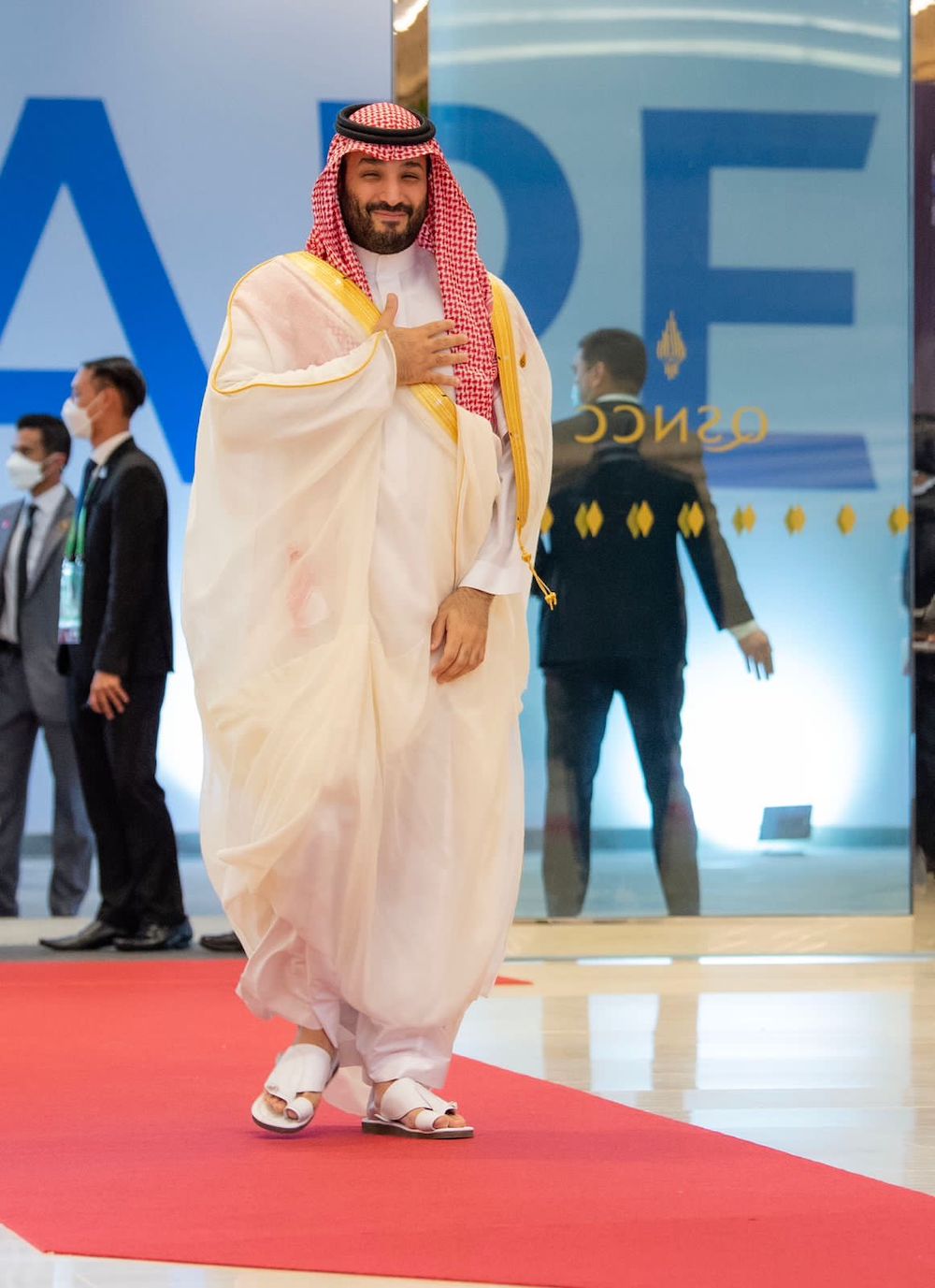
Saudi Arabia’s Crown Prince Mohammed bin Salman is leading delegates from the Kingdom to attend the annual gathering of the 21-member APEC. (Twitter: @spagov)
In August, the Islamic Center in Bangkok opened an exhibition of Saudi culture and heritage, which was organized by the Kingdom’s Ministry of Islamic Affairs.
Saudi Arabia first established diplomatic relations with Thailand in 1957. The two kingdoms enjoyed good relations that were strengthened with official visits.
In March 1966, the Kingdom raised the level of diplomatic representation in Thailand from a consulate to an embassy. Thailand opened its embassy in Riyadh in 1984 while keeping its consulate in Jeddah.
Relations between the two countries developed and continued in all political, economic, trade and tourism fields until 1990.
During his visit to Riyadh in January, Prayuth said Thailand attached utmost importance to friendship with Saudi Arabia, and was keen to end all outstanding issues.
He expressed his sincere regret over the tragic events that occurred in Thailand in 1989 and 1990, and said that the Thai government had made great efforts to resolve previous issues.
Thailand also stressed its commitment to the protection of Saudi diplomats in Thailand, in accordance with the Vienna Convention, and said it would raise previous issues with the competent authorities if new evidence surfaced.
